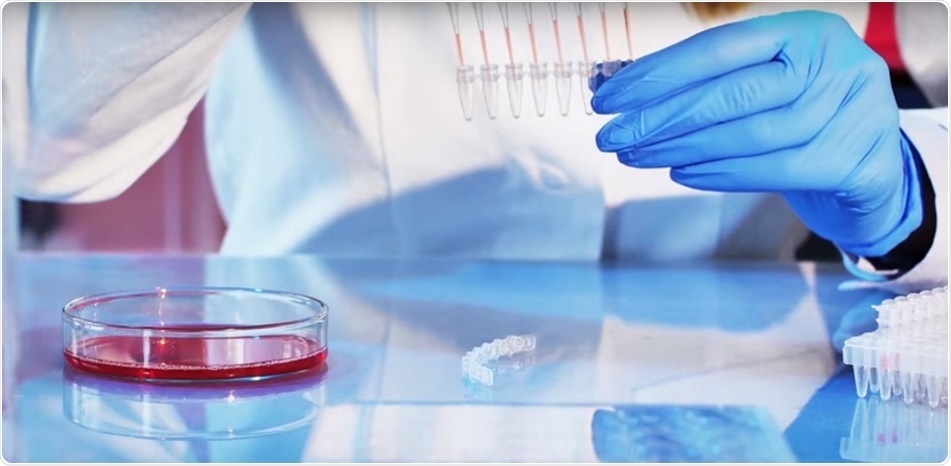
Generation Genome: the UK’s genetics revolution?
 insights from industryDr. Gerald MartinSubject Matter ExpertSOPHiA GENETICS
insights from industryDr. Gerald MartinSubject Matter ExpertSOPHiA GENETICSAn interview with Dr. Gerald Martin, SOPHiA GENETICS, conducted by April Cashin-Garbutt, MA (Cantab)
Can you please give a brief overview of the UK Chief Medical Officer’s Generation Genome report?
The report set out the NHS’ intentions of routinizing whole genome sequencing. It is particularly focused towards rare diseases and cancers, although conditions such as obesity, bacterial and other infections are also included.
Next Generation Sequencing (NGS) is already used in the NHS. It tends to be focused on the particular mutations that might be involved in diseases. The Chief Medical Officer’s report is about expanding this service so that it covers the whole of the patients’ DNA and not just selective parts. The aim is to identify novel mutations and mechanisms that are responsible for the diseases mentioned above.

The objective is to increase what is called the diagnostic yield, in other words, the proportion of patients where a definitive diagnosis can be given. By enabling access to genomic testing more patients will be able to benefit, and contribute to this increase. Ultimately this technology will help to identify the underlying cause of patients’ diseases, and will enable the development of new and innovative treatments.
What advances in genome sequencing and artificial intelligence have been seen in recent years and how far away are we from delivering the “genomic dream”?
Next Generation Sequencing (NGS) technology is a complete revolution in terms of producing genomic data. Consider that, back in 2003, sequencing the first human genome took 10 years and cost $3 billion to achieve. The same is now possible in just a matter of days, for just a fraction of the cost, at a thousand dollars.
SOPHiA, the collective Artificial Intelligence (AI) for genomics developed by SOPHiA GENETICS, detects, annotates and pre-classifies all types of genomic variants associated to multiple disorder areas including oncology, hereditary cancer, cardiology, metabolism and paediatrics. SOPHiA AI is constantly being improved to face the complexity of genomic data analysis. To put this into context, the human is 3.3 billion base pairs long. You are looking for a single base mutation among all of that information, so it is like finding a needle in a haystack.
AI such as SOPHiA works in two ways. It identifies the mutations that are present, and once identified, it predicts what effect these mutations can have in terms of disease. This is important because firstly, it cuts down the workload of clinical scientists in terms of finding the mutations. Secondly, it also makes it easier for them to prioritize which ones to focus on.
SOPHiA is already helping clinical and NGS laboratories in the UK to analyze and interpret the highly complex data coming out of sequencers. This universal technology is already making the genomic dream a reality. The objective today, is to deliver this dream on a national scale, the scale that Sally Davies is talking about in her report.
How has SOPHiA GENETICS contributed to the genomics revolution to date?
SOPHiA is being used by over 320 public hospitals across 51 different countries, from North America to South America, South Africa and Central Africa, all across Europe, the Far East and Australia. SOPHiA is already having a positive impact on peoples’ lives, having helped to diagnose over 117 thousand patients. SOPHiA GENETICS’ AI is also helping oncologists to make more informed decisions based on targeted available treatments and ongoing clinical trials, which ultimately will benefit patients’ lives.
What gaps did the Generation Genome report highlight?
Several, it is a challenging task. There is the security and privacy of patient data, as well as ethical considerations. Raising questions such as:
- How should this testing be done?
- When you find an issue with a patient or come across an incidental finding how do you communicate that?
- Who should communicate that information?
These are major issues that need to be addressed when dealing with clinical genomic testing, and must be solved before this technology can be widely adopted.
How can these challenges be overcome?
With regards to security and privacy of genomic data, these are part of SOPHiA GENETICS’ DNA. From inception, we have been applying a strict information policy that is reflected by our ISO 27001 (Information Security Management) certification. All data processed by SOPHiA AI, via the SOPHiA DDM platform, is encrypted and stored with the strictest security standards.
The NHS does and can achieve a lot through its network of capable and dedicated healthcare professional. There are certainly challenges, but with a collective approach and a universal technology these can be overcome.
What are the next steps for SOPHiA GENETICS?
SOPHiA GENETICS is today the global leader of Data-Driven Medicine. The company will continue to support healthcare institutions within the UK and around the world. Furthermore, SOPHiA AI is on track to analyse 1 millions patients by 2020.
How do you think the UK will contribute to the genomics revolution on a global level?
The UK has big potential to contribute at a global level. It has an incredible network of healthcare experts and institutions across the country. By connecting these institutions to the global community, pooling genomics data and facilitating knowledge sharing the UK will be in a position to positively impact the genomics revolution.
Where can readers find more information?
- Company website sophiagenetics.com
You can also:
- Follow us on Twitter:
- Corporate: @SOPHiAGENETICS
- SOPHiA GENETICS CEO: @JurgiCamblong
- Connect with us on LinkedIn
- And find our more information at our YouTube channel
About Dr. Gerald Martin
 Dr Gerald Martin gained a BA(Hons) degree in Natural Sciences and a PhD in molecular biology from Dublin University (Trinity College Dublin), Ireland, before taking up a post doctoral position at The Beatson Institute and Yorkhill Hospital in Glasgow (Scotland).
Dr Gerald Martin gained a BA(Hons) degree in Natural Sciences and a PhD in molecular biology from Dublin University (Trinity College Dublin), Ireland, before taking up a post doctoral position at The Beatson Institute and Yorkhill Hospital in Glasgow (Scotland).Following a post doctoral role at the Haematology Department in Cambridge University (England), Gerald joined Transgenomic Ltd (Glasgow, Scotland) where he held a range of
roles including Product Manager, Business Development Manager and Business Development and Marketing Manager.
This was followed by roles as Product Manager at Sirigen Ltd and Oxford Gene Technology (England) before a position as Visiting Scientist at the Wessex Regional Genetics Laboratory, Salisbury (England).
In 2015 Gerald joined SOPHiA GENETICS, the Swiss health tech company, Global leader in Data-Driven Medicine, his first position was Sales and Business Development Manager for the UK and Ireland before transitioning to Subject Matter Expert last year to help clinicians adopt the genomic revolution in clinical diagnostic.





















.png)












No hay comentarios:
Publicar un comentario